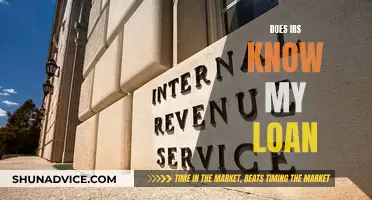
Refinancing a loan early can be a good idea if it helps you achieve your financial goals. For instance, if you're looking to tap into your home equity or get better loan terms, refinancing can be beneficial. It can help you lock in a lower interest rate, shorten your loan term, or change from an adjustable-rate mortgage (ARM) to a fixed-rate loan. However, refinancing takes time and money, and there are costs involved, such as appraisal, title search, and application fees. Therefore, it's essential to evaluate your financial situation, understand the full cost, and determine if refinancing will save you money in the long run.
| Characteristics | Values |
|---|---|
| Reasons to refinance early | To obtain a lower interest rate and smaller monthly payments, to tap into home equity to raise money for a large purchase, to consolidate debt, or to deal with a financial emergency |
| Requirements to refinance early | A credit score of at least 620, equity available in your home, a lower interest rate than your current loan rate |
| Downsides of refinancing early | Costly, time-consuming, may temporarily lower your credit score |
What You'll Learn

Refinancing can help you save money
Another way refinancing can save you money is by providing access to cash through a cash-out refinance. This involves tapping into the equity in your home and taking out a new mortgage that is larger than your current one. You can then use the extra cash to consolidate and pay off high-interest debts, make home improvements, or fund other financial goals such as a child's education. However, it's important to consider the costs associated with refinancing, which can include appraisal fees, application fees, and closing costs.
The decision to refinance should be based on your financial goals and market conditions. If you're looking to lower your monthly payments, improve your loan terms, or access cash, refinancing can be a powerful tool. However, it's important to evaluate the full cost of refinancing and consider how far along you are with your current loan. Additionally, if you plan to sell your home or pay off your loan in the near future, refinancing may not be the best option as you may not recoup the costs.
Market factors, such as current interest rates, can also impact the benefits of refinancing. Generally, it is more advantageous to refinance when market rates have fallen below the rate on your current loan. By monitoring market conditions and seeking guidance from financial professionals, you can identify the ideal time to refinance and maximize your savings.
Understanding Interest Accrual on Unsubsidized Loans
You may want to see also

It can help you lock in a lower interest rate
Refinancing a loan early can be a great way to lock in a lower interest rate, which can have several benefits. Firstly, it can reduce the amount of interest you pay over the life of the loan, potentially saving you a significant amount of money. This is especially beneficial if market interest rates are currently low, as you can take advantage of these lower rates and secure them for the duration of your loan.
Another advantage of refinancing to a lower interest rate is that it can lower your monthly payments. This can be achieved by either refinancing to a longer-term loan or maintaining the same loan term. Lower monthly payments can provide more financial flexibility and help you manage your budget more effectively.
Additionally, refinancing can be a strategic move if you're looking to build equity in your home faster. With lower interest rates, more of your monthly payment goes towards the principal balance, enabling you to build equity at a faster rate. This can be particularly beneficial if you're aiming to pay off your loan early or if you're looking to access the equity in your home through a cash-out refinance.
However, it's important to remember that refinancing comes with its own set of costs, including application fees, appraisal fees, and closing costs. Therefore, it's crucial to carefully evaluate your financial situation and goals before deciding to refinance. You should also consider the potential impact on your credit score, as multiple loan applications and credit checks can temporarily lower your score. Nonetheless, if your goal is to secure a lower interest rate, refinancing early can be a powerful tool to achieve that objective.
Leasing vs Loan: How Different Are Their Insurance Policies?
You may want to see also

It can help you access your home equity
Refinancing a mortgage can be a good way to access your home equity. Home equity refers to the value of your home that you own, as opposed to the part that you owe to the bank. Over time, as you pay off your mortgage, your home equity increases. Refinancing can allow you to access this equity and use it for other purposes.
There are several ways to access your home equity through refinancing. One way is to do a cash-out refinance, where you take out a new mortgage that is larger than what you currently owe, pay off the old mortgage, and keep the remaining amount in cash. For example, if your home is worth $300,000 and you owe $100,000 on your existing mortgage, you have $200,000 in equity. With a cash-out refinance, you could potentially convert a portion of that equity into cash and spend it as you wish. This cash can be used for various purposes, such as home improvements, consolidating debt, or paying for a child's education.
Another option is to refinance to a fixed-rate mortgage, which can help you avoid future interest rate hikes. This option may be suitable for homeowners who plan to stay in their homes for an extended period. By refinancing to a fixed-rate mortgage, you can lock in a lower interest rate and potentially reduce your monthly payments. This can help you build equity faster and access the equity in your home.
It is important to consider the costs and benefits of refinancing. Refinancing typically comes with fees and expenses, such as appraisal, title search, and application fees. Additionally, if you refinance to a lower interest rate but extend the term of your loan, you may end up paying more interest in the long run. Therefore, it is crucial to evaluate your financial goals and ensure that the benefits of refinancing outweigh the costs.
Before deciding to refinance, it is recommended to seek advice from a financial professional, such as a loan officer, who can help you understand the full cost and determine if it aligns with your financial and life goals. They can also guide you through the different types of refinancing options available and help you choose the one that best suits your needs. By taking the time to consider all aspects, you can make an informed decision about whether refinancing is the right choice for accessing your home equity.
HR Block's Refund Anticipation Loans: What's the Deal?
You may want to see also

It can help you pay off your loan sooner
Refinancing a loan can help you pay it off sooner. When you refinance a loan, you are essentially replacing it with a new one, which can come with a lower interest rate and smaller monthly payments. This can help you save money in the long run, as you will be paying less interest over time.
There are a few ways that refinancing can help you pay off your loan sooner. Firstly, if you can secure a lower interest rate on your new loan, you will be paying less money over the life of the loan. This can be especially beneficial if you switch from a fixed-rate loan to an adjustable-rate loan with a lower initial interest rate. However, it is important to keep in mind that adjustable-rate mortgages (ARMs) can increase over time, potentially resulting in higher payments.
Another way that refinancing can help you pay off your loan sooner is by shortening the term of your loan. For example, if you refinance from a 30-year mortgage to a 15-year mortgage, you will pay off your loan much faster. However, a shorter-term loan usually comes with higher monthly payments, so it is important to ensure that you can handle the increased payments.
Additionally, refinancing can help you pay off your loan sooner by consolidating your debts. If you have multiple debts with high-interest rates, such as credit card debt, you can use a cash-out refinance to pay them off. This will allow you to take advantage of the equity in your home to get a large sum of cash, which you can then use to pay off your other debts. This can be beneficial if you are struggling to keep up with multiple loan payments and want to simplify your finances.
It is important to keep in mind that refinancing a loan comes with its own set of costs, including application fees, appraisal fees, and closing costs. These costs can add up to a significant amount, so it is crucial to consider whether the benefits of refinancing outweigh these expenses. Additionally, refinancing can have a temporary negative impact on your credit score due to multiple loan applications and credit checks. However, making regular on-time payments on the new loan can help improve your credit score over time.
Honda's 84-Month Loans: Is It Worth It?
You may want to see also

It can help you get a larger loan amount
Refinancing a loan early can be a strategic move, especially if you're looking to borrow a larger amount. Here's how it works and when it might be beneficial for you:
When you refinance a loan, you're essentially replacing your current loan with a new one, typically with more favorable terms. One of the main reasons borrowers consider early refinancing is to take advantage of lower interest rates, which can result in significant savings over the life of the loan. However, focusing on the larger loan amount aspect can also be beneficial.
By refinancing early, you may be able to secure a lower interest rate, which can increase your borrowing power. This is because a lower interest rate directly impacts the overall cost of the loan, making it more affordable to borrow a larger sum. For example, if you've been making timely payments on your current loan and your credit score has improved, you may qualify for a lower interest rate on a new loan. This improved rate could mean that you're able to borrow the amount you originally needed, plus additional funds, all while keeping your monthly payments manageable.
Additionally, refinancing can provide an opportunity to extend the loan term. By spreading the payments over a longer period, you can reduce the monthly financial burden, making it easier to manage a larger loan amount. This can be especially beneficial if your financial situation has changed, or you're facing unexpected expenses and need some extra breathing room in your budget.
Early refinancing can also be advantageous if your home or property has increased in value. With a higher appraised value, you may be able to borrow more against the property, giving you access to a larger loan amount. This can be particularly useful if you're looking to fund home improvements, consolidate debt, or invest in other financial opportunities.
It's important to remember that refinancing comes with its own set of costs, including closing fees and other charges. Be sure to weigh these against the potential benefits to ensure that refinancing early is the right decision for your financial goals. Consulting with a financial advisor or loan expert can help you make an informed choice that aligns with your specific circumstances.
Income-Based Loan Payment Plans: Counting Couples' Income
You may want to see also
Frequently asked questions
Refinancing is the process of revising and replacing the terms of an existing credit agreement, usually relating to a loan or mortgage.
Refinancing a loan can help you obtain more favourable borrowing terms, such as a lower interest rate, reduced monthly payments, or a shorter loan term. It can also help you access cash by tapping into your home equity.
Refinancing is often done when interest rates drop, as this can help secure a lower interest rate on the new loan. It is also beneficial if your credit score has improved since taking out the original loan, as this can help you get a better deal.
Refinancing typically costs between 2% to 7% of the loan amount in closing costs and fees. There may also be prepayment penalties on your current loan, and you will likely have to pay for a new appraisal, title search, and application fees.
To refinance a loan, you will need to approach a lender, either your existing one or a new one, and complete a new loan application. The lender will evaluate your credit and financial situation to determine your eligibility and the new loan terms.







